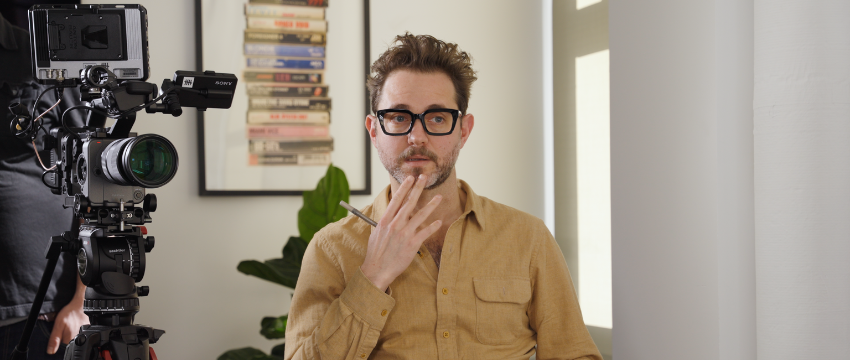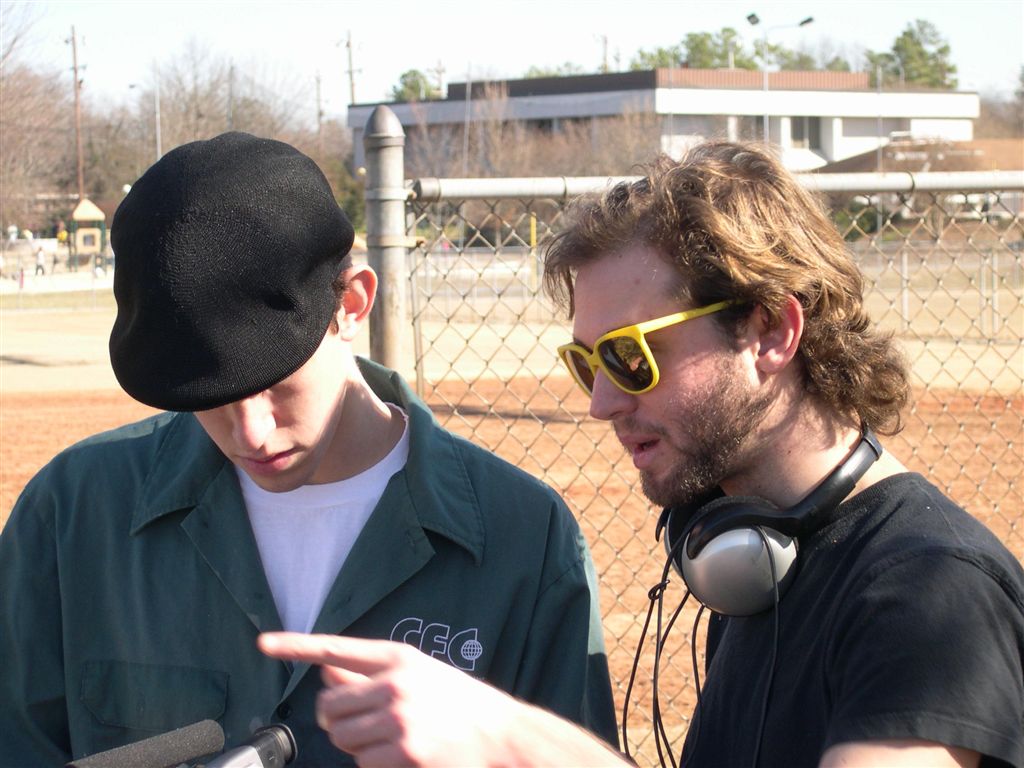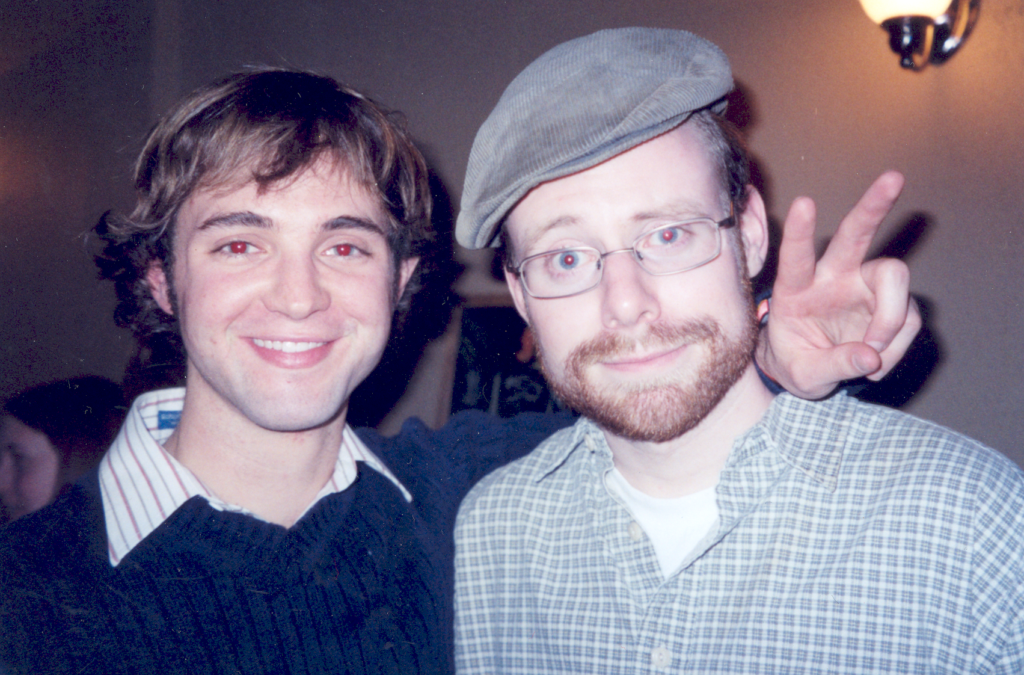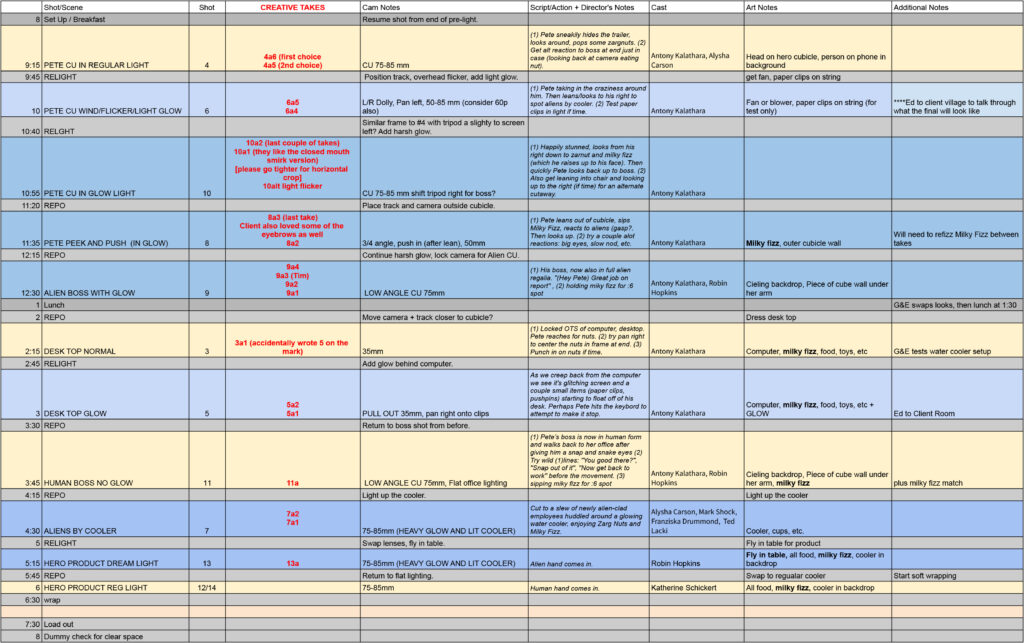Bulldog 100 Honoree Interview: Trevor Williams (ABJ ’02, MA ’04)

Bulldog 100 Honoree Interview: Trevor Williams (ABJ ’02, MA ’04)
This is one of a series of interviews honoring Grady College alumni who have been recognized as Bulldog 100 recipients in 2024. The Bulldog 100 is sponsored by the UGA Alumni Association and celebrates the 100 fastest-growing businesses owned or operated by UGA alumni.
Trevor Williams (ABJ ’02, MA ’04) co-founded Pig Apple, a comedy and animation production studio with two other UGA alumni, Mack Williams (BFA ’03) and Ed Mundy (BFA ’02). His directing and writing credits include networks such as Nickelodeon, Cartoon Network, The New Yorker, IFC and Comedy Central Digital as well as commercial clients such as UPS, Hello Fresh, Jagermeister, Walmart and Vox. He has won several awards for his web-series and short films.
What motivated you to become an entrepreneur?
Pig Apple, our production company, was formed rather casually because two other former UGA grads—animators Mack Williams and Ed Mundy—and I kept hiring each other to help with our various clients’ needs. We eventually figured out that from a branding and bookkeeping standpoint, it was much easier for the three of us to consolidate into one soup-to-nuts live-action and animation production house.

What key lessons have you learned from your entrepreneurial journey?
Set up a business structure that you know will suit your needs. Since my partners and I do so much freelance work, we thought it was important to draw up a clause in our founding documents that would allow any of us to take any gig we wanted outside of our production company. If an agency wants me to direct a commercial that is not a Pig Apple client or campaign, I can still do it. This has allowed all of us to stay busier, more flexible, and happier than we would have been if constricted to only doing business under the company umbrella. My partners work for Saturday Night Live on the weekends. How cool is that?
How has mentorship helped you throughout your career?
Seeking feedback from others who are slightly ahead of me in their career has helped me avoid their mistakes and gravitate toward their good professional habits and practices. One mentor in particular, Brendan Colthurst, displayed many of these positive habits when I worked for him as an editor over a decade ago. He still always picks up the phone when I call him for professional advice.
What qualities or behaviors differentiate exceptional leaders from the rest?
I think having patience, being a good listener and curbing your ego all allow you to be open to the best solutions for any given problem, without exacerbating the negative.
How did your time at Grady College shape where you are today?
While attending Grady, I had so many resources and opportunities to make my own student-produced content. Ed, Mack, Andrew and all of my friends and I worked on a student-produced show called The Silly Spider Money Fiasco! Beyond me, the SSMF alumni also include several TV producers, the animation director of Archer and an Executive Producer of Bob’s Burgers! I realized the only way to learn filmmaking is through trial and error. It was like being a young athlete and having this amazing gym and coaches to help guide you through tough practices and scrimmages until you were ready for the Olympics…of life!

What is a challenge you faced in this career path and how did you overcome it?
The challenge of trying to be everything to everyone haunts someone early in their career because you have to take on more opportunities and work with more people when you are getting started. As you get more established, you can get pickier about who you work with. That refinement allows you to cater your career into a more pleasant and manageable thing. It also took me a while to trust and delegate others to take on some of my workload, as I was expanding. That is a very necessary skill for growth.
What goals have you set for your company?
Every year we set aside some of our profits to fund original creative projects, which is really awesome. This system has allowed me to self-fund several short films and is now currently helping me fund my first documentary feature. My goal is to have it done in the next year or so. Simultaneously, my partners are developing the first Pig Apple original animated TV pilot.
What advice do you have for today’s Grady College students?
Know the difference between serving your client and serving your own creative needs. When doing the former, you should bring all of your creative ideas to the table, but ultimately, it’s not your baby. You do what the client wants because their needs are different from yours and they are paying you to execute them. For that reason, it is important to always have your own creative projects on the back burner that allow you to have full creative autonomy over something. This prevents you from trying to force something you really want onto a client who really doesn’t want it.
Are there any books or podcasts that you would recommend to young entrepreneurs?
- “Atomic Habits” by James Clear
- “10% Happier” by Dan Harris
- “On Filmmaking” by Sydney Lumet
What is the most important skill an entrepreneur must master?
I’ll speak for my business because it’s the only one I really know anything about. For a filmmaker, I think the most important skill to have is a well-grounded plan that you have stress-tested for any possible scenario. Storyboard and shot list your coverage, make notes on your scripts, make a grid for the flow of the day but, be psychologically ready to throw that all away and improvise as best you can if or when that plan doesn’t work.

You may have planned out an entire outdoor wedding scene, but then it rains. Or there is a lawn mower making tons of noise next door. Or your lead actor has COVID. So you have to have the ability to keep the stress low and think clearly to yourself: “OK what is the best thing I can shoot right now given the circumstances? What are the 10 shots that will still tell the story I need to tell effectively?” I did a few 24-hour film festivals in my early career that prepared me well for these situations. They allow you to move forward quickly and as best you can, and then you realize it wasn’t as hard as you may have thought it was. That said, having a plan ahead of time REALLY helps you draw up a new one later if you have to.
What skills and/or values and/or circumstances do you attribute to your success?
In addition to directing, I learned to write and edit while at Grady and continued to refine these skills after I graduated. I find myself using all three of these skills daily and tripling my net worth as a result of being proficient in all three. Being able to edit not only gives you the ability to make money during slow times, but it also gives you tremendous creative control and insight over your own material as you do not have to rely on hiring some expensive editor to tell your own stories. In summary, I would say even if you have no interest in being a writer or editor for hire, if you want to be a filmmaker LEARN HOW TO WRITE AND EDIT!
Other Grady alumni recognized in the 2024 Bulldog 100 list include:
- Leo Falkenstein (ABJ ’13, BBA ’14), Consume Media
- Elizabeth Newton (ABJ ’99), ENewton Design
- Marie Hunter (ABJ ’02), KRG Fuel + Energy
- Brooke Beach MacLean (ABJ ’11), Marketwake
- Trevor Williams (ABJ ’02, MA ’04), Pig Apple, LLC
- Cindy Edwards (ABJ ’86) and Stephanie Duttenhaver (M ’81), Sapelo Skin Care
- Jason A. Russell (ABJ ’96), Stable Kernel
Editor: Morgan Jones | morgan.jones2@uga.edu